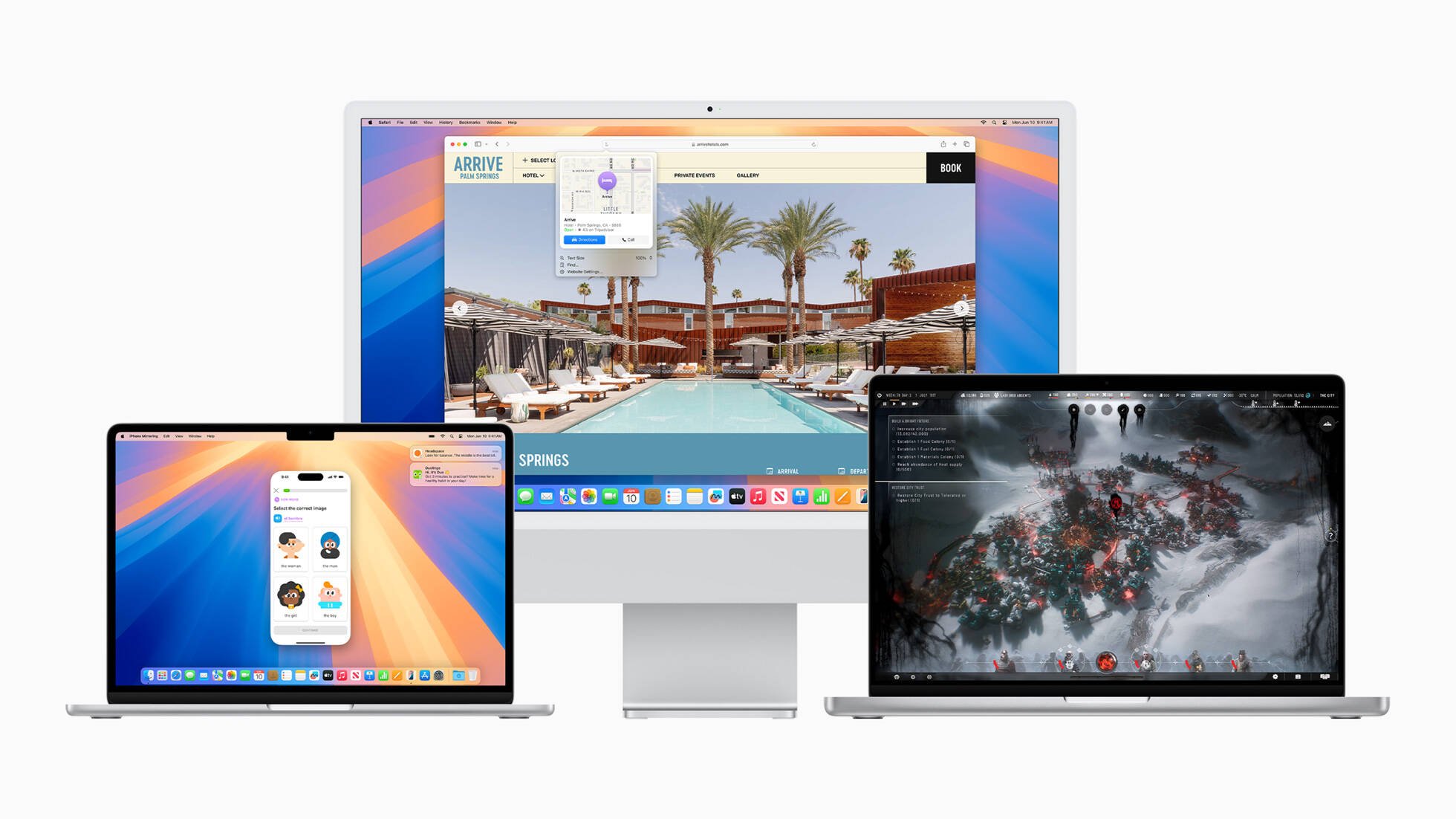Apple’s Worldwide Developer Conference on Monday announced a number of upcoming improvements to the iGiant operating systems, including improved app security, support for RCS in Messages, and a dedicated password manager app.
The most notable announcement had to do with the debut of “Apple Intelligence” – Cook & Co’s plan to integrate machine learning into its various apps and devices in a privacy-conscious way.
But on Apple’s operating systems – visionOS, watchOS, macOS, iOS, iPadOS and tvOS – there were a few notable improvements, as well as a variety of cosmetic novelties.
In iOS 18, Apple is taking steps to make mobile apps less accessible when an iPhone is being used by someone other than the owner.
“Sometimes we give our device to someone so he or she can look at a picture or play a game,” noted Craig Federighi, SVP of software engineering at Apple, during the keynote presentation, “but we want peace of mind that they can’t get in sensitive parts of our phone. That’s why this year we’re giving you a new way to protect sensitive apps and the information within them by letting you lock an app.”
When you lock an app, subsequent access requires authentication via Face ID, Touch ID, or passcode. Information within a locked app should not be accessible elsewhere, such as through search or notifications.
Apple is also adding a locked, hidden folder that can hide the presence of apps, as well as a way to limit which contacts are shared with apps. Expect this to be the first stop for any forensic investigator who gets an iPhone.
Apple’s Messages app in iOS 18 supports RCS (Rich Communications Services) – a successor to the MMS (Multimedia Messaging Service) standard that Apple resisted until recently.
In fact, Apple has expanded its emergency satellite service, which provides a way to make calls if it can’t connect to a cell tower or Wi-Fi, to include emergency text messages – end-to-end encrypted, no less.
There’s also Emergency SOS Live Video, which allows participating emergency services to ask a caller to share live video or media from the user’s camera roll.
macOS Sequoia adds “iPhone Mirroring,” which presents a virtual iPhone on the user’s desktop through which files can be exchanged.
Those using macOS 15 (as well as iOS 18, iPadOS 18, Vision Pro, and PCs with iCloud for Windows) will also get access to a password management app called Passwords. Yes, 1Password and other third-party password management apps are ‘Sherlocked’. In other words, Apple has decided to launch an app or add features that will likely erode the market for third-party software.
Similarly, the arrival of Tap to Cash in iOS 18 – which allows iPhone users to send and receive Apple Cash by holding two iPhones side by side – will seriously worry apps like Venmo and PayPal Zettle, as they offer similar features. And third-party developers that offer AI writing assistance, such as Grammarly and Goodnotes, now have to deal with Apple Intelligence capabilities in Apple Notes and other native applications. Window Tiling has also been improved in macOS Sequoia, which may overlap with features in third-party window tiling apps like Magnet.
Apple’s visionOS – the software for Cupertino’s pricey Vision Pro “spatial computing” glasses – has been revised to version 2. The update improves the resolution of the Mac Virtual Display, a visual desktop simulation, adds support for a guest user and upgrades Travel Mode with support for trains. It also adds several APIs, such as TabletopKit, for creating 3D renderings of tabletop games.
Meanwhile, watchOS 11 offers a new Vitals app that collects important health data: heart rate, respiratory rate, pulse temperature, sleep duration and blood oxygen. The Health app has also been updated for improved pregnancy support. And there are a number of other updates for training, customization and personalization.
With tvOS 18, there’s a new feature called InSight, which can show information about actors, the characters they play, and music in Apple TV+ entertainment. There’s also a feature called Enhance Dialogue that uses machine learning to make dialogue easier to hear in poorly mixed scenes (Christopher Nolan will hate this). And Apple’s Home app in iOS has added support for guest access and hands-free unlocking of doors and security systems.
The additions to iPadOS largely overlap with those in iOS. Perhaps the most interesting addition to iPad is Math Notes – an interactive mode in Calculator and Notes that allows iPad users to write down math operations by hand, using an Apple Pencil of course, and have the operating system calculate and write the answer when there is one equals’ sign appears. ‘sign has been drawn. There is also a feature called Smart Script that makes handwriting smoother and converts copied and pasted text into the user’s handwriting style.
Of course this is a developer conference…
Developers haven’t been forgotten in the rush to sprinkle Apple’s stuff with AI pixie dust. Xcode 16, Apple’s Integrated Development Environment, features Swift Assist – a cloud-based AI assistance framework that Apple says uses only developer code to process requests and does not store or use developer code for training.
This is complemented by an on-device code completion engine in macOS Sequoia that allows developers to get code completion suggestions in Xcode even when they’re offline.
Finally, Apple’s Swift programming language, which was introduced a decade ago, is moving to GitHub. Version 6 includes features to better support concurrent programming on multicore architectures. These include the safety of data races at compile time, making it easier to diagnose problems related to concurrent memory access at compile time.
Developer betas for Apple’s latest operating systems are now available to registered developers. ®
